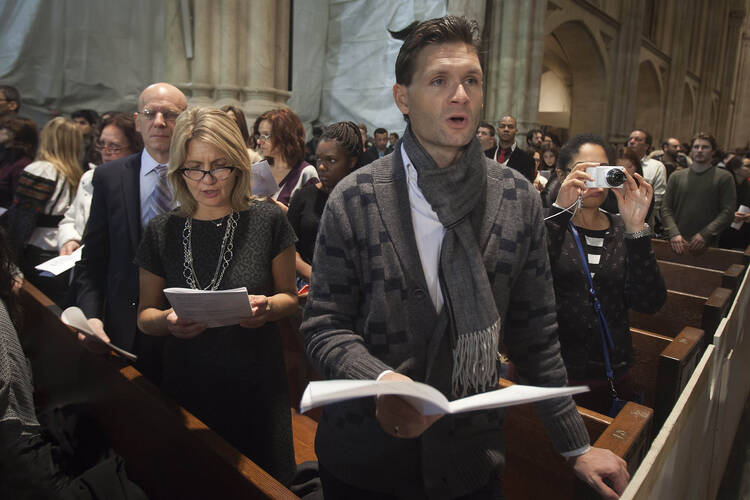The Christmas season has evoked a number of essays on faith and religion, including essays from two regular columnists at the New York Times and one from Eric Metaxas in the Wall Street Journal.
T.M. Lurhmann, professor at Stanford, in "Religion Without God" (12/24) wrote:
Religion is fundamentally a practice that helps people to look at the world as it is and yet to experience it -- to some extent, in some way -- as it should be. Much of what people actually do in church -- finding fellowship, celebrating birth and marriage, remembering those we have lost, affirming the values we cherish -- can be accomplished with a sense of God as metaphor, as story, or even without mention of God at all.
Yet religion without God may be more poignant. Atheists trust in human relations, not supernatural ones, and humans are not so good at delivering the world as it should be. Perhaps that is why we are moved by Christmas carols, which conjure up the world as it can be and not the world we know.
In "The Subtle Sensations of Faith" (12/22), NYTimes columnist David Brooks offered a more favorable treatment of religious life, observing:
Insecure believers sometimes cling to a rigid and simplistic faith. But confident believers are willing to face their dry spells, doubts, and evolution. Faith as practiced by such people is change. It is restless, growing. It’s not right and wrong that changes, but their spiritual state and their daily practice. As the longings grow richer, life does, too.
And on Christmas Day in the Wall Street Journal, Eric Metaxas summarized some of the scientific data that's been building over the last half-century, data that constitutes powerful evidence of intention -- i.e., mind -- behind the creation of the universe:
Today there are more than 200 known parameters necessary for a planet to support life—every single one of which must be perfectly met, or the whole thing falls apart. Without a massive planet like Jupiter nearby, whose gravity will draw away asteroids, a thousand times as many would hit Earth’s surface. The odds against life in the universe are simply astonishing.
Yet here we are, not only existing, but talking about existing. What can account for it? Can every one of those many parameters have been perfect by accident? At what point is it fair to admit that science suggests that we cannot be the result of random forces? Doesn’t assuming that an intelligence created these perfect conditions require far less faith than believing that a life-sustaining Earth just happened to beat the inconceivable odds to come into being?
There’s more. The fine-tuning necessary for life to exist on a planet is nothing compared with the fine-tuning required for the universe to exist at all. For example, astrophysicists now know that the values of the four fundamental forces—gravity, the electromagnetic force, and the “strong” and “weak” nuclear forces—were determined less than one millionth of a second after the big bang. Alter any one value and the universe could not exist. For instance, if the ratio between the nuclear strong force and the electromagnetic force had been off by the tiniest fraction of the tiniest fraction—by even one part in 100,000,000,000,000,000—then no stars could have ever formed at all.
Related Post:








